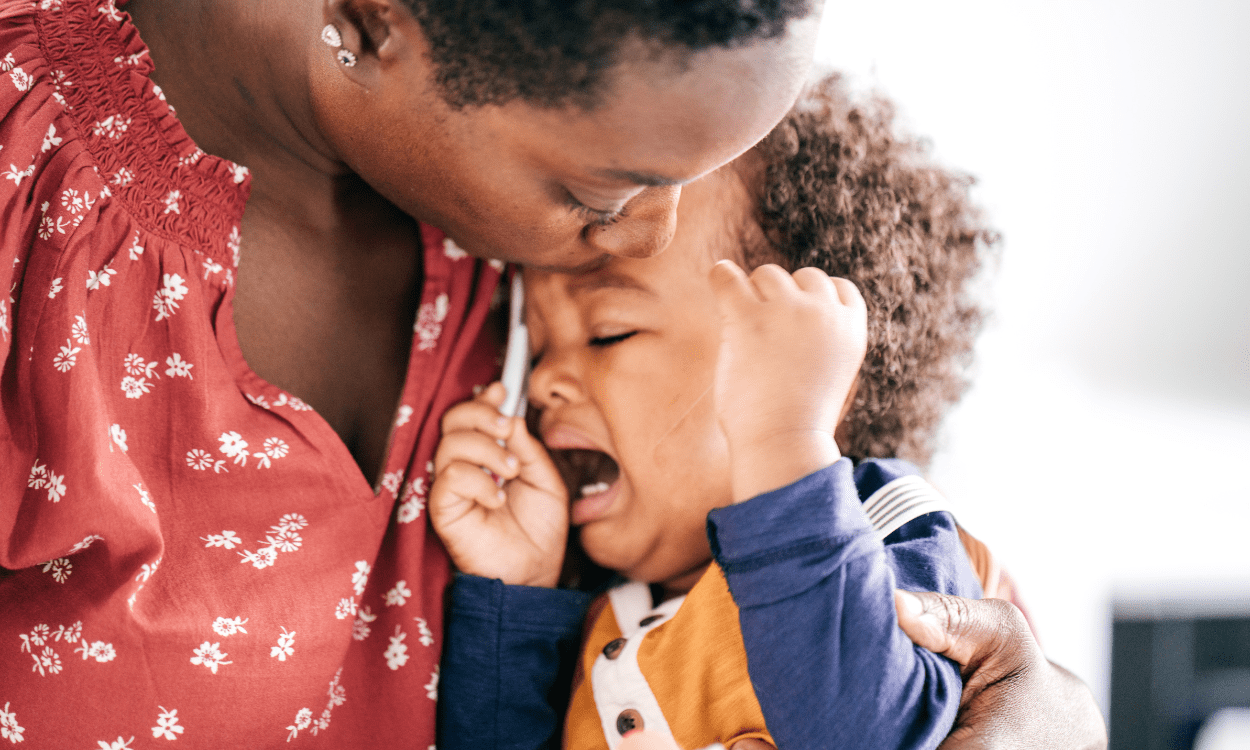Kids are doing their best to be understood, but they don’t always have the right words to express themselves yet. It’s normal for your child to get upset when they’re confused or feeling misunderstood, but here’s the big takeaway – that’s not a tantrum!
Tantrums are emotional outbursts that manifest when your child wants to assert control over their situation. Even if they can do something, like tie their shoes or take a nap, they may fight your attempts to make those things happen because they don’t want to do them. This is different from simply expressing discontent, and you should treat these situations differently. Today, we’ll be discussing a widely accepted Montessori method of mitigating attention-seeking behavior when your child throws a tantrum. Let’s get into it!
What is a temper tantrum?
Younger children tend to have an underdeveloped prefrontal cortex, which is where inhibition and impulse control take place within the brain. This means that if a child wants something but doesn’t get it, they’ll respond by getting upset and angry without the ability to calm themselves down.
Don’t try to reason with your child when they’re in this state, as it’s only going to stress you out and possibly reinforce the behavior. After all, you’re giving them what they want – attention.
De-escalate
Your child’s emotions are like fire. If you stop feeding it, then eventually it will cool off.
The first step is to de-escalate the emotional situation. Try to avoid visibly reacting to your child’s outburst, as a reaction could reinforce the behavior and prove that acting out gets your child the attention they want. Instead, don’t engage with the negative behavior at all until the child calms down enough that they’ll listen to you. This is commonly known as planned ignoring, and it’s useful for communicating to the child that they can’t get what they want by exhibiting bad behavior.
It’s worth nothing that you don’t want to use planned ignoring for harmful behaviors like biting or hitting. If your child attempts to turn their frustration on you or another child, you can intervene by removing them from the upsetting situation and placing them in a pre-determined “calm down” spot in a separate area. This spot should be a safe place for the child to work out their frustration without hurting themselves or others, so be sure to line the “calm down” spot with pillows, blankets, and other soft, soothing things.
Redirect
If your child really wants something they can’t have, they’re determined to fixate on it and continually upset themselves until they get what they want. Of course, that fixation can’t last forever. Try and offer the child alternative activities to distract them from the upsetting thing. If possible, remove them from the upsetting situation so they can’t see the thing they want. This will help them lose track of their tantrum and forget what they were upset about. If there are more problem behaviors, use planned ignoring as necessary.
Learn!
Every tantrum is a learning experience for both you and your child. Your child will learn as they get older that acting out is not a method of getting what they want, and you will learn what makes your child tick. Over time, your child will become more capable of managing their own emotions, but they need your patience in the meantime!
It’s important to remember that negative behavior often gets worse before it gets better as your child attempts to push your buttons and escalate the situation in new and unexpected ways. Plus, you may learn that some behaviors aren’t tantrums at all, but instead are your child’s attempts to be understood. Remain thoughtful and compassionate, and you’ll discover the difference.
Every child has a different approach that works best for them. To give your child the best opportunity to succeed in educational development as well as emotional development, enroll them at Inspire Kids Montessori! Our pedagogy focuses on your child’s individual strengths and needs, which gives them the tools they need to succeed for the rest of their lives. To see if our facilities are right for you, schedule a tour at either of our beautiful facilities in Ahwatukee and Layton Lakes. We look forward to meeting you and your child!

